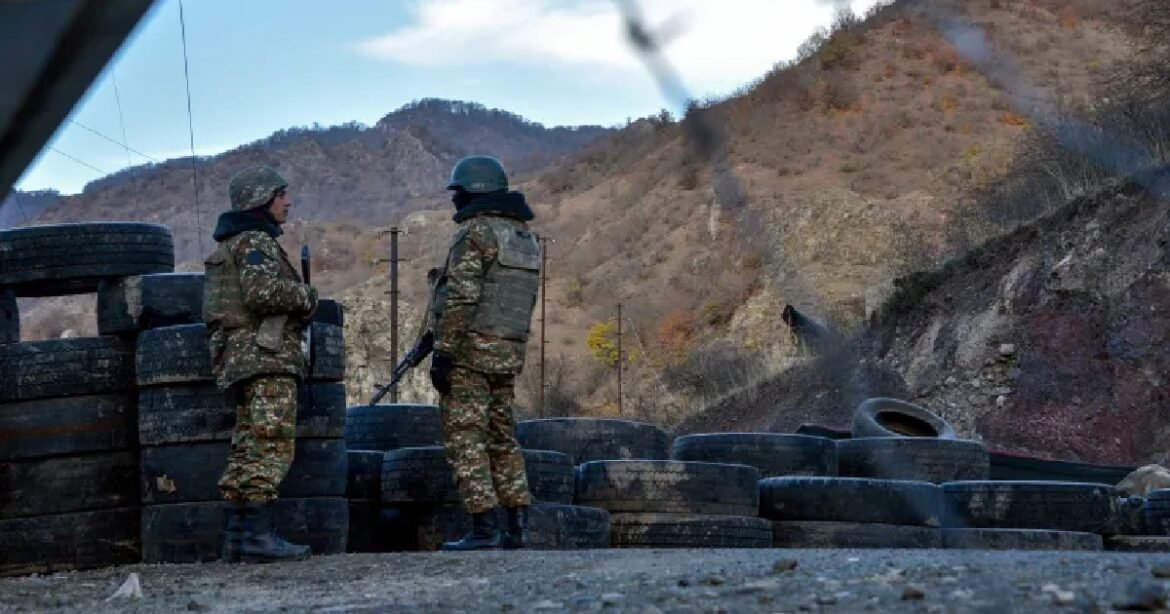- Azerbaijan initiated an “anti-terror campaign” in the Nagorno-Karabakh region, insisting on the “total removal” of ethnic Armenian forces as a prerequisite for peace in the contested area.
- In response, Armenia’s foreign ministry appealed to Russian peacekeeping forces deployed in the region, urging them to step in and halt what it described as Azerbaijan’s “large-scale aggression” against the local populace.
In a rapidly escalating conflict in the Nagorno-Karabakh region, Azerbaijan has initiated what it terms an “anti-terror operation” and has demanded the complete withdrawal of ethnic Armenian forces as a prerequisite for peace in the disputed territory. Meanwhile, Armenia has called upon Russian peacekeeping troops to intervene, denouncing Azerbaijan’s actions as “full-scale aggression” against the local population.
You can also read: Canada-India Tensions: The Hardeep Singh Nijjar Case Unveiled
Tensions have been steadily mounting in the South Caucasus, particularly around the breakaway enclave internationally recognized as part of Azerbaijan. The main town of Karabakh witnessed air raid sirens and mortar fire, with a mine explosion and another incident leading to the tragic deaths of 11 Azerbaijani police and civilians.
Defense officials from the breakaway region accused the Azerbaijani military of violating the ceasefire along the entire line of contact through missile and cannon attacks, characterizing it as a “large-scale military offensive.”

Azerbaijan and Armenia have engaged in two previous wars over Nagorno-Karabakh, first in the early 1990s following the Soviet Union’s dissolution and then again in 2020. Just three years ago, Azerbaijan successfully reclaimed Karabakh and its surrounding territories, which had been occupied by Armenia since 1994. In recent months, Azerbaijan had effectively blockaded the enclave’s sole route from Armenia, known as the Lachin Corridor.

Azerbaijan’s Defense Ministry asserted that its operations were focused on disarming and securing the formations of Armenia’s armed forces without targeting civilians or civilian structures, emphasizing the use of high-precision weaponry. Armenian Prime Minister Nikol Pashinyan refuted claims of his military’s involvement and accused Azerbaijan of pursuing an “ethnic cleansing” campaign against Karabakh Armenians, as the sounds of artillery and gunfire echoed from the regional capital of Khankendi.
Tragically, residential areas of Khankendi were hit, including a building that suffered damage. Karabakh’s human rights ombudsman reported casualties, including a child’s death and injuries to several children.
Armenian officials indicated relative stability along the country’s own border as of 14:00 local time (10:00 GMT). Russia’s foreign ministry was alerted to the Azerbaijani attack shortly before it commenced, urging both nations to honor the ceasefire agreed upon after the 2020 war. The EU‘s regional special representative, Toivo Klar, echoed the call for an immediate ceasefire.
The fragile ceasefire, which concluded the six-week war in 2020, has faced mounting pressure in recent months. Commentator Lawrence Browers noted that the siege had weakened the Armenian population of Karabakh, while the Azerbaijani operation appeared aimed at fully recapturing the Armenian-populated region. Hikmet Hajiyev, a special adviser to Azerbaijani President Ilham Aliyev, urged the separatist ethnic-Armenian administration to dissolve itself.
Though approximately 3,000 Russian peacekeepers were deployed to monitor the 2020 ceasefire, Moscow’s focus has been diverted by the full-scale invasion of Ukraine. Armenia’s prime minister previously suggested that Russia was spontaneously leaving the region, while Azerbaijan enjoyed strong support from its ally, Turkey.
Azerbaijan denied amassing troops in the region. On the preceding Monday, the International Committee of the Red Cross was permitted to deliver aid to Karabakh via two routes: the Lachin Corridor from Armenia and another through the Aghdam road in Azerbaijan.
However, hopes for tension alleviation dwindled when Azerbaijani officials reported the deaths of six individuals, including four policemen, in a landmine incident in the retaken Khojavand area from the 2020 war. The Defense Ministry released photos of the wrecked vehicle, but ethnic Armenian officials in Karabakh contended that it violated the ceasefire with Azerbaijan’s military.


